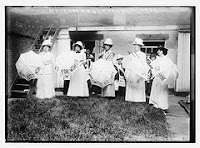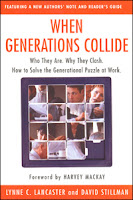 I’m counting down til the debate. For pre-game commentary, check out Salon (“The Big Veep Sweepstakes”), feministing (on sexism and generations), and, well, everywhere! Addendum: These bits just in from the ladies over at the WMC:
I’m counting down til the debate. For pre-game commentary, check out Salon (“The Big Veep Sweepstakes”), feministing (on sexism and generations), and, well, everywhere! Addendum: These bits just in from the ladies over at the WMC:
In The Washington Post, political reporter Anne Kornblut, who has covered the Obama camp since the start of the election cycle and has also covered Hillary Clinton for the New York Times, shares her thoughts on media bias, her experience as a female journalist working in a mostly male press corps and her expectations for Thursday’s vice presidential debate.
Over at Politico, women ex-governors sound off. Among Sarah Palin’s class of trailblazing female governors, Palin is not universally embraced for her accomplishments. In interviews with the former governors who agreed to speak on the record, the subject of Palin tended to draw mixed emotions, with opinions sharply divided along partisan lines.
A Time poll shows Obama making headway with women. Propelled by concerns over the financial crisis and a return of support from female voters, Barack Obama has opened a formidable 7-point lead over John McCain, reaching the 50% threshold among likely voters for the first time in the general campaign for President, according to a new TIME poll.
Over at CBS, news anchor Katie Couric asked Biden and Palin some “Vice Presidential Questions.” This installment tackles Roe v. Wade and Supreme Court decisions.
The LA Times reports that John McCain’s running mate still appeals to many on a personal level, but other voters have grown wary of her experience.
Seen anything else particularly worth sharing? Feel free to post links in comments.





